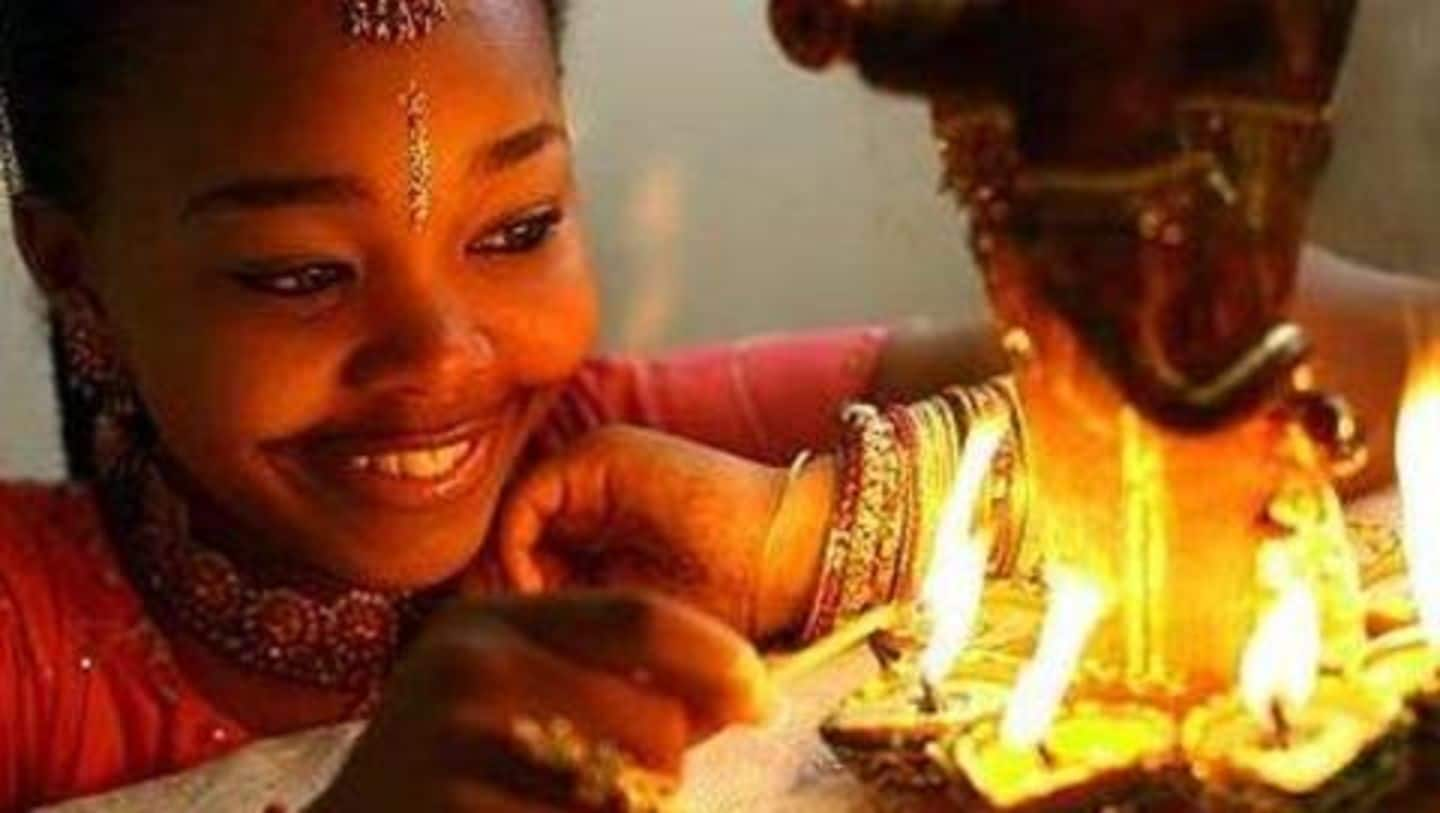
Amid communal-tension, Diwali in South Africa hailed as social-cohesion exercise
What's the story
The 20th edition of the annual Diwali Festival in Durban has been hailed as a major social-cohesion exercise in a city that is bedevilled by tensions between the large Indian community in South Africa and the indigenous Zulus. The two-day festival of culture, color, and cuisine was aimed at and attracted not just the Hindu community, but hundreds of South Africans from all communities.
Details
There was skepticism when Diwali was first mooted, says organizer
"This is social cohesion right on the ground," said Ashwin Trikamjee, President of the South African Hindu Maha Sabha, which is organizing the event that officially opened on Saturday evening. He recalled the skepticism in many quarters when Diwali was first mooted a few years after the local beachfront was racially desegregated following the election of Nelson Mandela as the country's first democratic president.
Initiative
Venue was formerly home of Durban's only drive-in cinema
"So many people, including from our own community, told us that it would not work, but we took up the challenge," said Trikamjee. He added, "We went ahead at the beachfront, where supporters showed up, prompting us to seek larger venues over the years until we settled on the present site, which was formerly the home of Durban's only drive-in cinema until its closure."
Guests
Chief guest Buthelezi a great follower of Mahatma Gandhi
The chief guests included Prince Mangosuthu Buthelezi, a great follower of Mahatma Gandhi and, at 90, still head of the Inkatha Freedom Party. In his address, Buthelezi referred to the importance of social-cohesion and called for all South Africans to hold hands across racial divides. Guest speaker Thoko Mkhwanazi-Xaluva, the chairperson of the statutory Cultural, Linguistic and Religious Rights Commission also echoed Buthelezi's call.